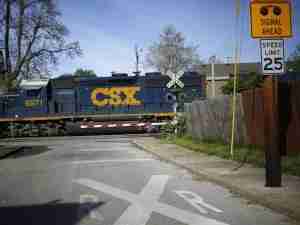While CN is pleased that, in releasing the report, the Government recognized the importance of a supply chain approach and noted its preference for commercial solutions, CN is concerned that the Government's decision to consider tabling legislation could stifle supply chain innovation and Canada's competitiveness in the global marketplace.
Claude Mongeau, president and chief executive officer, said: "CN disagrees with the focus and tenor of the panel's recommendations. Like the dissenting panel member, we are concerned that the panel's recommendations are drifting backward toward more regulation instead of encouraging the current momentum for positive change.
Mongeau noted that the panel failed to act on the hard facts that were before it, which show that rail service in Canada is actually quite good overall.
More importantly, the panel failed to recognize the significant positive change that has been taking place over the past two years to address key service issues, including improved customer engagement, initiatives to improve the first-mile/last-mile of rail traffic movements, and enhanced supply chain efficiency and transparency.
Contrary to its mandate from the government to examine service provided by the "rail-based logistics chain," the panel focused solely on the railways - the only federally regulated segment of the supply chain - and missed the fact that all participants in the supply chain are accountable for transportation system performance, not just railways.
At the same time, the panel arbitrarily exceeded the scope of its mandate by opining on railway competition. The panel asserted that the railways' "market power" is a cause of service problems, while ignoring the clear evidence to the contrary and providing no support for its unsubstantiated claim.
Mongeau added, "CN is pleased that the Government on its part recognizes the positive momentum in the railway industry, is anchoring its preference on commercial solutions, and is focusing on the end-to-end supply chain. This is the only way in our view to achieve lasting service improvements. We are, however, disappointed that the Government considers legislation may still be needed. The Canada Transportation Act (CTA) already provides extensive safeguards to protect shippers' interests, and we believe a regulatory approach runs the risk of stifling innovation and thwarting the progress that has been achieved in the last two years."
Within a commercial framework, CN will continue to be an active participant to promote improved service to customers and greater supply chain collaboration. CN looks forward to working with all stakeholders on the Government's commercially-focused initiatives, such as the development of a sound commercial dispute resolution process and the sharing of relevant data across all supply chain participants.
Mongeau said, "CN remains fully committed to its strategic agenda of operational and service excellence. Deeper customer engagement is the right way to do business and the best way to help our customers across Canada win in their own end markets.
"In the end, supply chain partners need to embrace change to drive better service and efficiency gains. Burdensome regulation targeting railways alone is not the solution. Greater supply chain collaboration and more service innovation are what is needed to foster Canada's prosperity."







